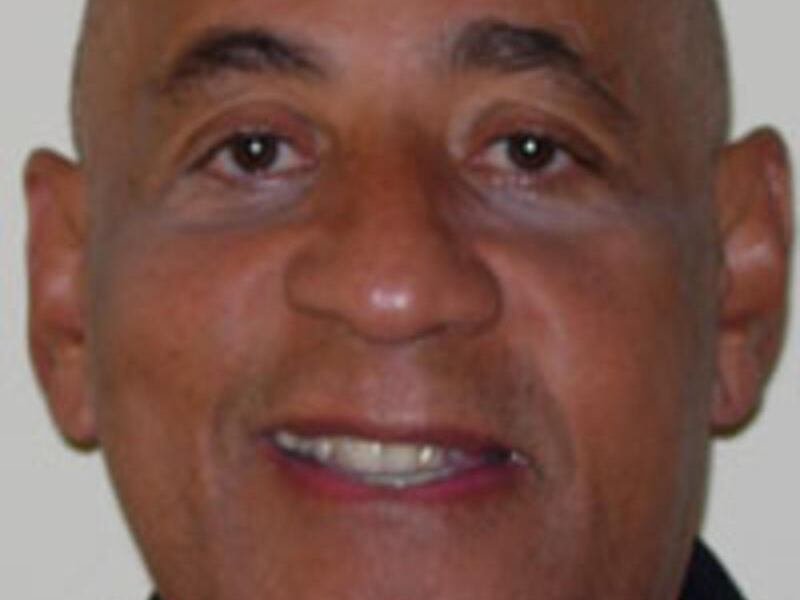Editor's note: Noting the 30th anniversary of the 1978 priesthood revelation, this is part of a series of profiles on black Mormons and their families.
For Ronald McClain, interest in The Church of Jesus Christ of Latter-day Saints was a gradual process.
He recalls that as a law student at University of California-Davis, a female law student caught his eye. As they became friends, he learned that she was a member of the church. He and Deena Peterson eventually married in 1982.
Although his wife was not active in the church when they married, that soon changed.
"We started going to church together, and we looked at the church as a way to help raise our family," McClain said in a recent telephone interview from Oakland, Calif., where he is a member of the 1st Ward.
"She didn't urge me to join, but I saw how the church was part of her life. I learned about her family and her home ward."
He says her father was especially kind to him. "He welcomed me and made me part of the family. When the elders approached me, I already had a receptive attitude. I thought, 'I sure can see a lot of good things that can come out of it.' "
McClain was baptized in 1986, and he and his wife have been active ever since.
Now working in his own law practice, he is also a sealer in the Oakland Temple and community relations specialist for the church's Bay Area public affairs — a long road from his younger days as a member of the Black Panthers, a black activist political group in the 1960s and 1970s.
"It was a time of upheaval in the black community, and I was sympathetic to it," McClain said. He says the issues were important to blacks, and he was active in the Panthers and similar groups for four or five years.
But since his baptism, he has gained eternal perspectives. He and Deena, also a lawyer, are the parents of three daughters, two in their 20s and one teenager still at home. Their middle daughter, Rachel, is about to be married in the temple to a returned missionary.
"(Our daughters) have always been active, participated in youth programs and followed the path of the gospel," McClain said. "The church has been quite a blessing in our lives."
McClain was baptized after the 1978 revelation extending the priesthood to all worthy male members regardless of race, so he didn't have the experience of making that transition. But he has seen some unsettling reactions from some church members toward black Saints.
"The church is a challenge for anyone to join, a startling and dramatic change," he said. "The church is a 24-by-7 commitment."
Sometimes prejudice and bias show through, he added, because the church is made up of human beings.
"We as human beings aren't perfect," he said. "If you're facile in the workday world, you'll be the same in church. If you have difficulty in the world, you'll have the same in church.
"I've had people react ... to me as a black person, not as a fellow Saint, even in the temple. As you go different places, it just happens."
He has seen fewer of those reactions in Oakland, where there is more diversity in the population in general.
He takes comfort in President Gordon B. Hinckley's words at the priesthood session of the April 2006 general conference: "Racial strife still lifts its ugly head," President Hinckley said. "I am advised that even right here among us there is some of this. I cannot understand how it can be ... Now I am told that racial slurs and denigrating remarks are sometimes heard among us. I remind you that no man who makes disparaging remarks concerning those of another race can consider himself a true disciple of Christ. Nor can he consider himself to be in harmony with the teachings of the church of Christ."
McClain says "we have some work to do as a nation" and as a church. "You've had the (priesthood) revelation, President Hinckley has spoken. It will just take time. We need to be more Christ-like; we just need to turn to the Savior and love the gospel. We all have to perfect ourselves."
He believes black Latter-day Saints can affect the way they are perceived. Among his suggestions:
- Be proactive, not reactive.
- Serve well and fulfill callings. "As you serve, you're in a position to affect others who may be part of the problem," he said.
- Be at the table where discussions are being held.
- Really be part of the church and put your shoulder to the wheel.
- Be worthy to partake of the blessings of the church.
As more blacks are part of the church, he says, "we're all concerned with eternal salvation and any other differences should be put aside."
McClain loves his current calling as temple sealer, which he has done for almost three years.
"I really, really enjoy it," he said, especially when he is performing a sealing for a young couple starting an eternal family.

